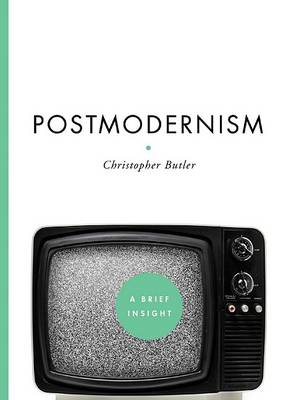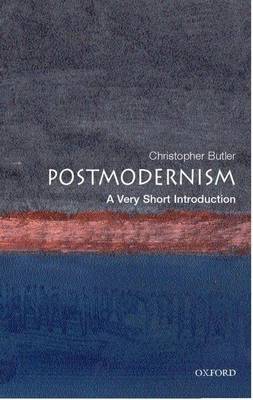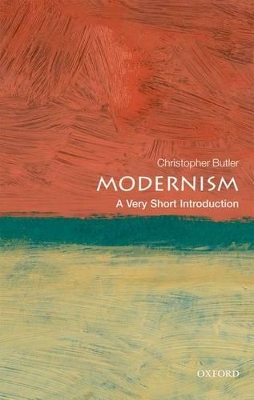Very Short Introductions
3 total works
Christopher Butler challenges and explores the key ideas of postmodernists, as well as their engagement with theory, literature, the visual arts, film, architecture, and music. By treating artists, intellectuals, critics, and social scientists as if they were all members of a loosely constituted and quarrelsome political party, he creates a vastly entertaining framework in which to unravel the mysteries of the postmodern condition from the politicizing of museum culture to the cult of the politically correct.
Postmodernism has been a buzzword in contemporary society for the last decade. But how can it be defined? In this Very Short Introduction Christopher Butler challenges and explores the key ideas of postmodernists, and their engagement with theory, literature, the visual arts, film, architecture, and music. He treats artists, intellectuals, critics, and social scientists 'as if they were all members of a loosely constituted and quarrelsome political party' - a party
which includes such members as Cindy Sherman, Salman Rushdie, Jacques Derrida, Walter Abish, and Richard Rorty - creating a vastly entertaining framework in which to unravel the mysteries of the 'postmodern condition', from the politicizing of museum culture to the cult of the politically correct.
ABOUT THE SERIES: The Very Short Introductions series from Oxford University Press contains hundreds of titles in almost every subject area. These pocket-sized books are the perfect way to get ahead in a new subject quickly. Our expert authors combine facts, analysis, perspective, new ideas, and enthusiasm to make interesting and challenging topics highly readable.
which includes such members as Cindy Sherman, Salman Rushdie, Jacques Derrida, Walter Abish, and Richard Rorty - creating a vastly entertaining framework in which to unravel the mysteries of the 'postmodern condition', from the politicizing of museum culture to the cult of the politically correct.
ABOUT THE SERIES: The Very Short Introductions series from Oxford University Press contains hundreds of titles in almost every subject area. These pocket-sized books are the perfect way to get ahead in a new subject quickly. Our expert authors combine facts, analysis, perspective, new ideas, and enthusiasm to make interesting and challenging topics highly readable.
Is a tower block, your unmade bed, your lavatory basin, or the bicycle chained to the gate next door a work of art? Why should a novel have a beginning, a middle, and an end; or even a story? Whether we recognise it or not, virtually every aspect of our life today has been influenced in part by the aesthetic legacy of Modernism.
In this Very Short Introduction Christopher Butler examines how and why Modernism began, explaining what it is and showing how it has gradually informed all aspects of 20th and 21st century life.
Butler considers several aspects of modernism including some modernist works; movements and notions of the avant garde; and the idea of 'progress' in art. Butler looks at modernist ideas of the self, subjectivity, irrationalism, people and machines, and political definitions of modernism as a whole.
ABOUT THE SERIES: The Very Short Introductions series from Oxford University Press contains hundreds of titles in almost every subject area. These pocket-sized books are the perfect way to get ahead in a new subject quickly. Our expert authors combine facts, analysis, perspective, new ideas, and enthusiasm to make interesting and challenging topics highly readable.
In this Very Short Introduction Christopher Butler examines how and why Modernism began, explaining what it is and showing how it has gradually informed all aspects of 20th and 21st century life.
Butler considers several aspects of modernism including some modernist works; movements and notions of the avant garde; and the idea of 'progress' in art. Butler looks at modernist ideas of the self, subjectivity, irrationalism, people and machines, and political definitions of modernism as a whole.
ABOUT THE SERIES: The Very Short Introductions series from Oxford University Press contains hundreds of titles in almost every subject area. These pocket-sized books are the perfect way to get ahead in a new subject quickly. Our expert authors combine facts, analysis, perspective, new ideas, and enthusiasm to make interesting and challenging topics highly readable.


